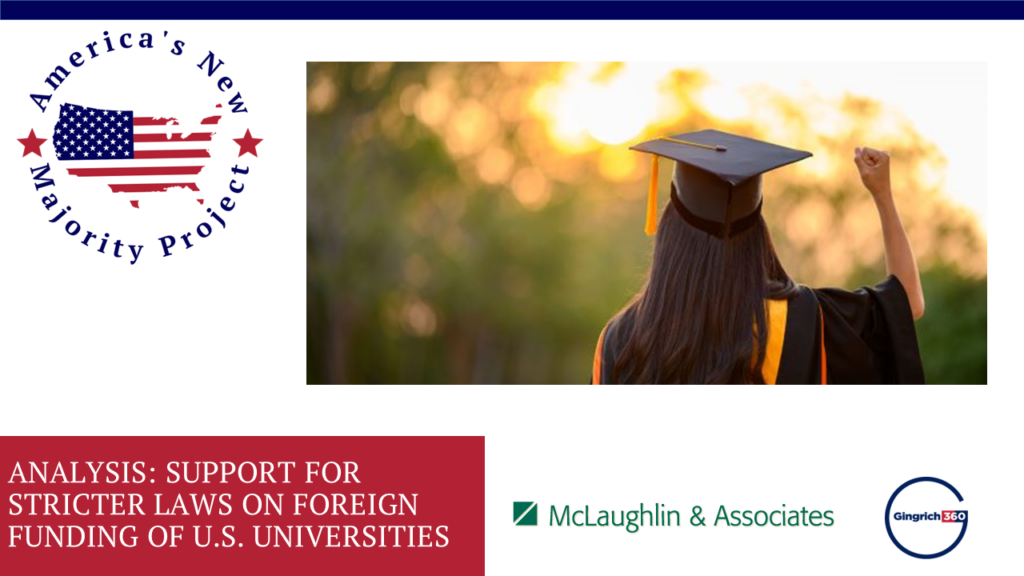A striking 75% of voters support the DETERRENT Act, a law that would require more transparency for foreign gifts and contracts in U.S. universities.
- Support crosses all demographic groups.
WHY IT MATTERS – Rising concerns about intellectual property theft, notably from China, and campus antisemitism, potentially linked to Middle Eastern funds, spotlight the influence of foreign money on U.S. universities.
HOW TO USE THIS DATA – The results highlight the widespread approval of transparency over foreign funds and the mixed feelings toward banning them, which vary by voter groups.
Click on the image below to read the full report…or read the summary below.
In-Depth Look at Voter Support:
- 75% favor the DETERRENT Act, including 47% who “strongly support” and 29% who “somewhat support” the proposed law.
- A similar percentage of voters (73%) support a hypothetical law that would require U.S. charities and foundations that fund universities to report all foreign money they receive.
- Republicans (85%), Democrats (70%) and independents (70%) all support the DETERRENT Act.
- There is a significant age divide, with large majorities of Baby Boomers (85%), Gen X (77%), and Millennials (71%) supporting the law but a slim majority of Gen Z (50%) supporting it.
- There is little divide by education level, with non-college graduates (75%), bachelor’s degree holders (78%), and post-graduate degree holders (73%) all supporting the proposed law.
- New Majority (75%) and Left Minority (65%) voters support the proposed law.
After Hearing Both Sides:
- Support decreases to 64% after hearing arguments for and against the law.
- The largest declines in support occur among Democrats (-16%), women (-14%), Hispanics (-15%), and Left Minority (-15%) voters.
- Still, majorities in all demographic groups support the Act.
Comparing Stricter Laws:
- 47% support a hypothetical law banning foreign funds from specific countries of concern, but 37% oppose it.
- A more general ban on all foreign funds is less popular, with 41% in favor and 43% opposed.
- Key opposition to these bans comes from Democrats, women, Gen Z, the college-educated, and Left Minority voters.
- Educational differences are stark: non-college grads favor the bans, while those with college and advanced degrees mostly oppose them.
Political Implications:
- A Republican favoring stricter foreign fund laws leads a Democrat who opposes them by 50-32.
- This shows a 15-point shift toward the GOP candidate compared to the generic ballot.
- The hypothetical GOP candidate gains the most support from swing voters (+10), men (+7), Blacks (+8), and less conservative New Majority voters (+9).


